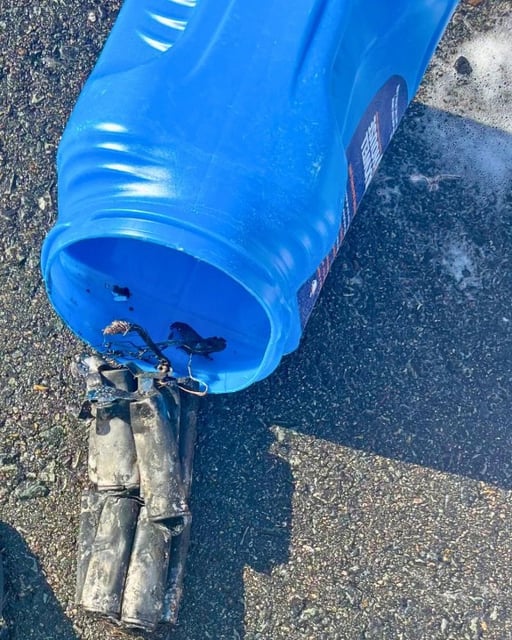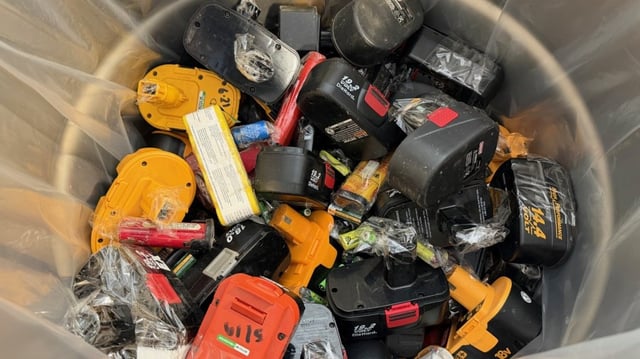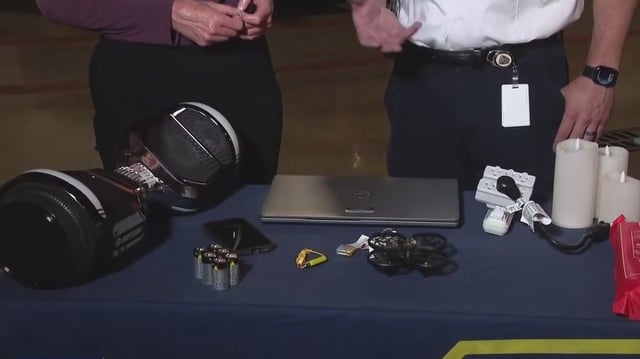Overview
- Firefighters highlight that lithium‑ion batteries power everything from phones and laptops to e‑bikes and EVs, yet can overheat or explode if damaged, poorly made, or improperly charged.
- Consumers are urged to buy from reputable retailers and check for safety certifications such as UL or IEC before using replacement batteries or chargers.
- Safe charging guidance includes using the manufacturer’s charger, avoiding overnight charging or charging near bedding, and keeping large devices like e‑bikes out of the home while charging.
- Authorities advise never putting lithium‑ion batteries in household trash and to use hazardous‑waste facilities or retailer programs at Lowe’s and Home Depot, with drop‑off sites listed at call2recycle.org/locator.
- If a battery feels hot or is off‑gassing, officials say to move it onto open concrete outdoors, avoid dunking it in water, and call the fire department’s non‑emergency line for removal.


